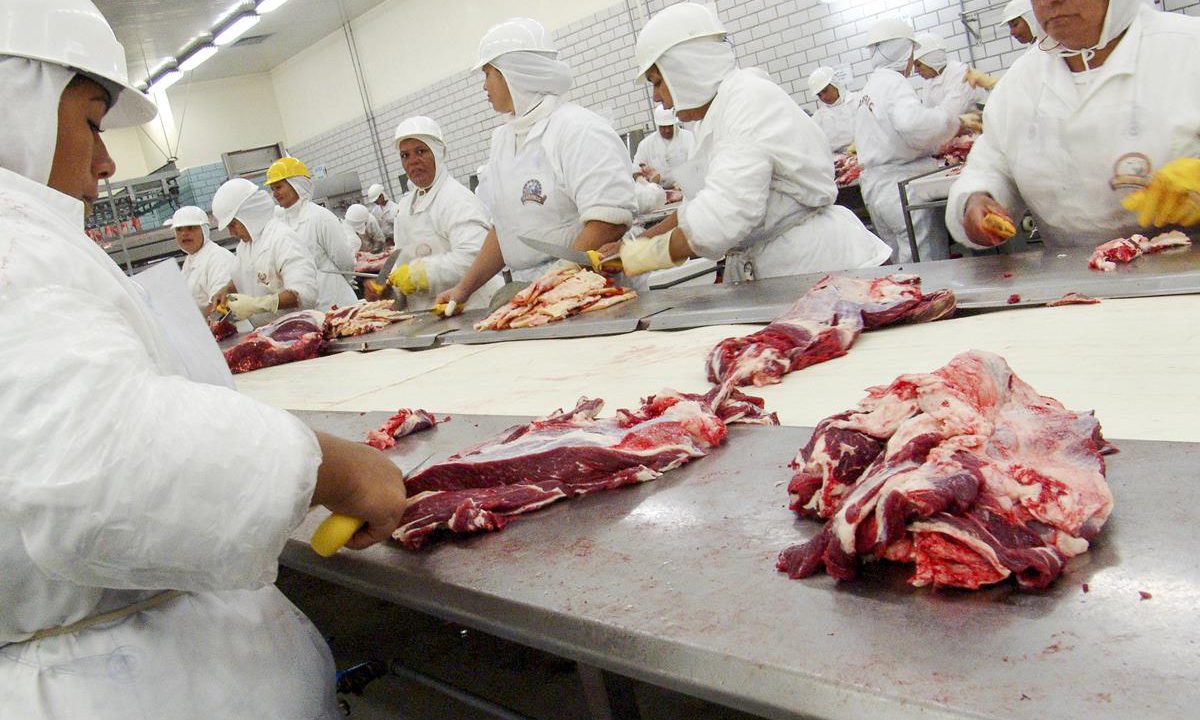The European Federation of Food, Agriculture and Tourism Trade Unions (EFFAT) has concluded the EU-wide project #MeatTheStandards aimed at improving working conditions in the European meat industry.
Taking inspiration from the Occupational Safety and Control Act, which significantly improved working conditions in the German meat industry, EFFAT and others have urged the upcoming EU institutions to assume European responsibility for the matter.
The unions want the EU to improve labour standards in a sector which it said is “plagued by substandard conditions, wage undercutting, and exploitation”.
Conditions for meat sector workers
Ahead of the next EU elections, EFFAT is urging the new European Commission and the incoming European Parliament to safeguard workers from exploitation at the EU level.
They want this achieved by enacting a binding initiative that regulates sub-contracting, addresses abusive intermediaries, and strengthens workplace inspections.
According to EFFAT, the two-year #MeatTheStandards project, which brought together affiliates from across Europe, has yielded significant results enhancing cooperation, raising awareness, and advocating for better labour standards.
The federation has said that the collective efforts of participants have led to tangible outcomes, including:
- Awareness raising: The project shed light on the pervasive nature of issues within the European meat industry, emphasising the need for concerted action at the European level;
- Belgian collective bargaining agreement on social fraud: A significant milestone was the development of the Belgian collective bargaining agreement addressing social fraud in the meat sector, underscoring the importance of regulatory measures in safeguarding workers’ rights;
- Organising efforts in Poland: Successful organising initiatives were undertaken in Poland, aimed at empowering workers and improving their working conditions;
- Exchange with member organisations in Romania: Meaningful exchanges were facilitated with member organisations in Romania, fostering cross-border collaboration and knowledge sharing.
- European Works Council (EWC) work: EFFAT engaged and coordinated the establishment of a European Works Council (EWC) in LDC, advocating for the rights and interests of workers at the multinational level.
Leveraging the outcomes of the EU project, EFFAT general secretary, Kristjan Bragason highlighted the significance of these achievements in advancing the rights and wellbeing of meat industry workers across Europe: “The working conditions in the meat sector have stained the European labour market.
“Regardless of its profitability, a sector cannot truly thrive if built on exploitation and social dumping,” he added.
NGG trade union chairman, Guido Zeitler said: “It took many years of fighting the exploitative structures of the German meat industry, before outsourcing and sub-contracts were finally banned by law.
“This was a milestone, which we now want to achieve together for Europe. But we also want to make further improvements.
“Dubious former sub-contractors are still up to mischief as recruitment agencies, transporters, and accommodation providers.
“We urgently need more regulation and stricter controls here – in Germany and Europe,” Zeitler added.
EFFAT’s demand for better working conditions through sub-contracting chains is included in #CallingEU, a larger EU elections manifesto calling for a new EU mandate committed to delivering a fairer Europe for workers.
